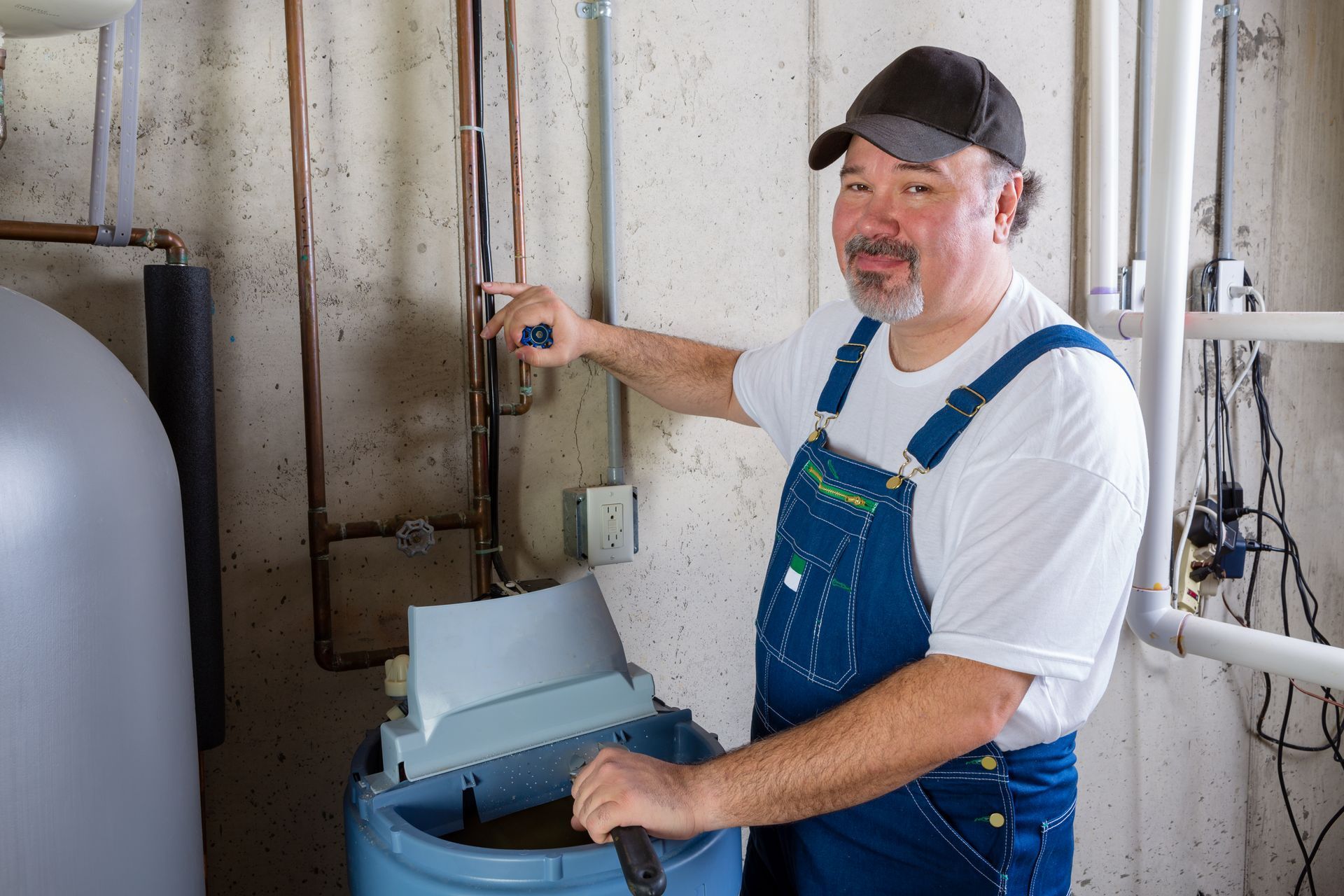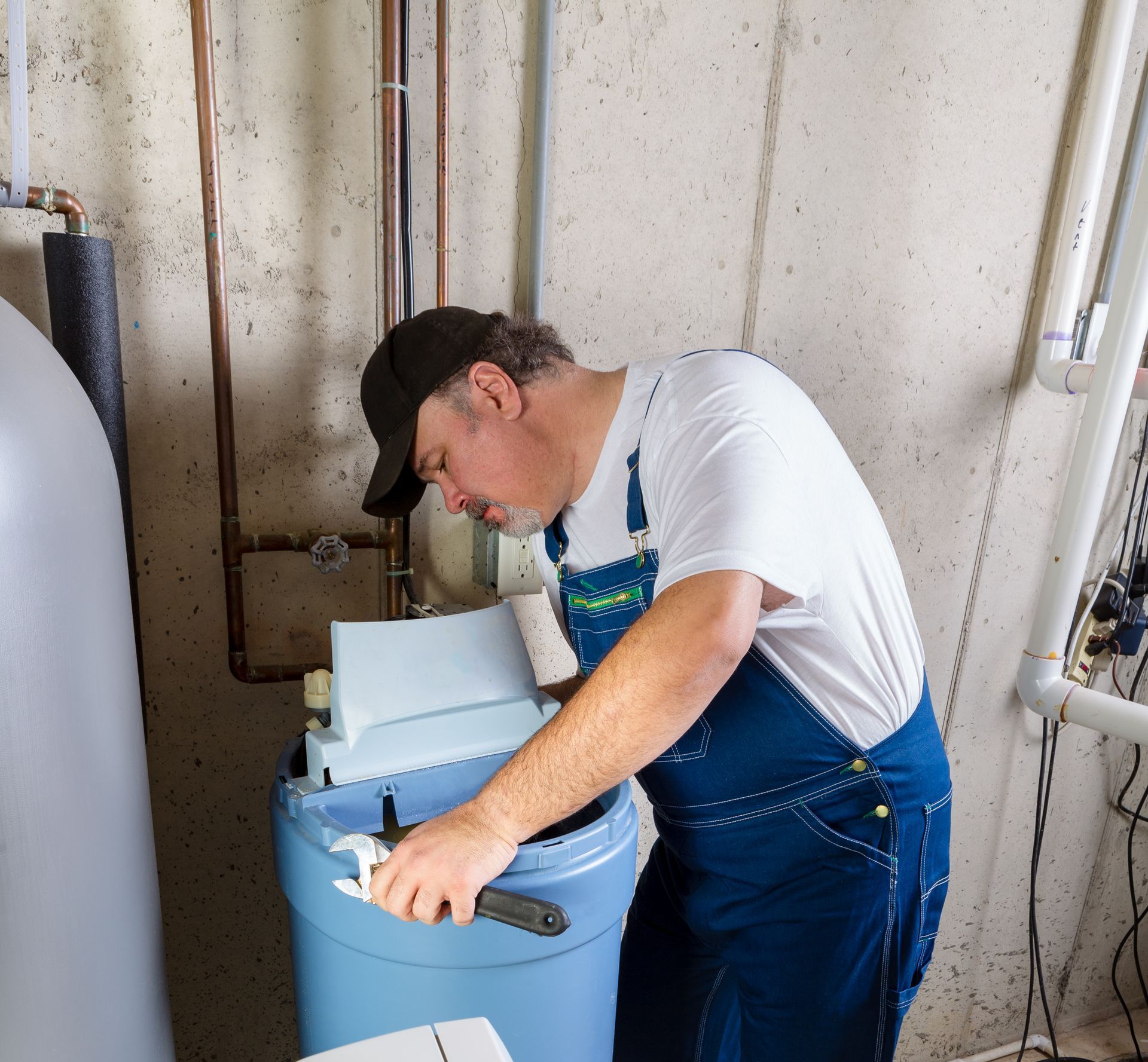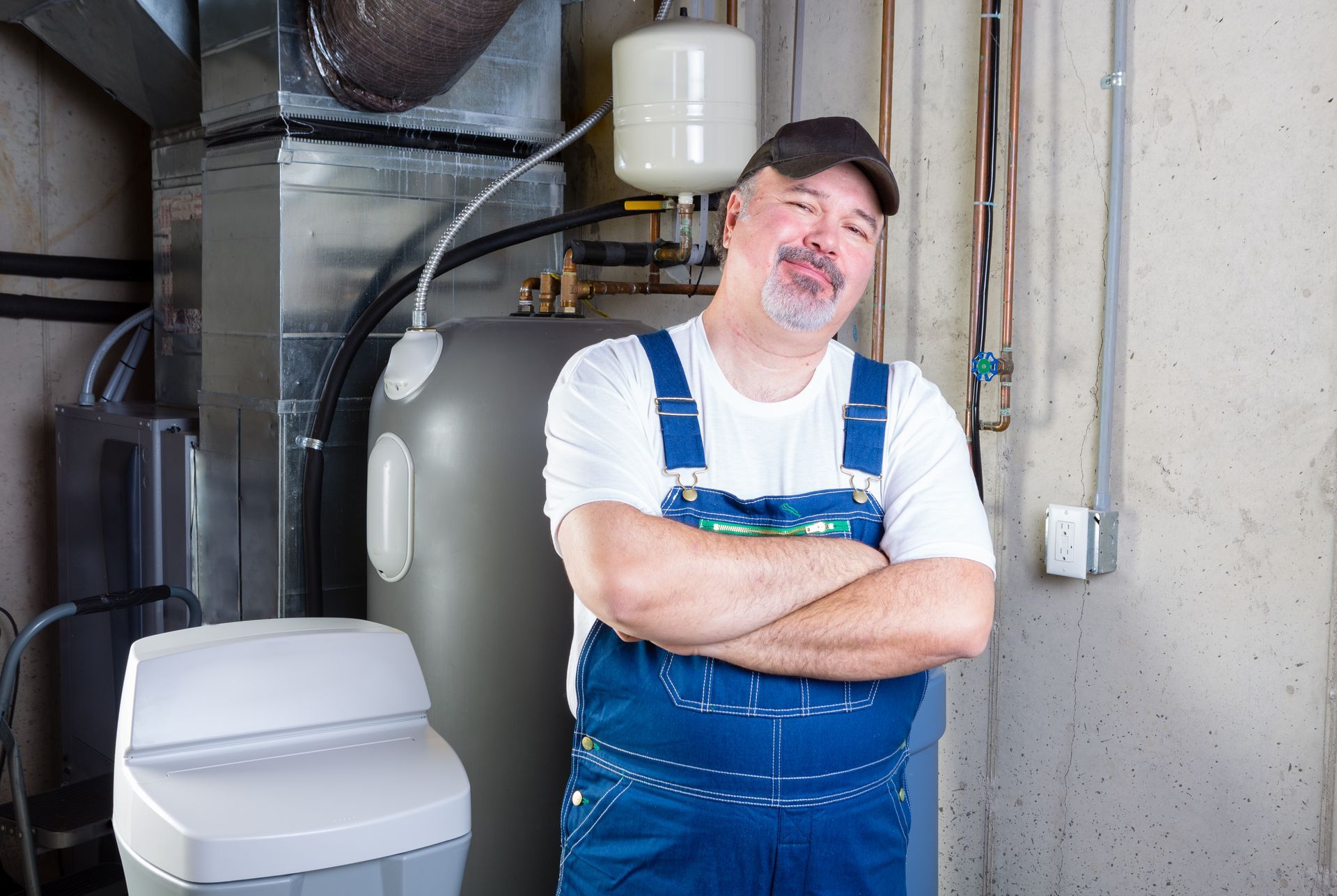How to Know if You Need a Water Softener for Your Home

Are you noticing mineral buildup on your faucets and fixtures? Do your clothes feel stiff and scratchy even after washing? If you've been grappling with these issues, it might be time to consider the benefits of a water softener for your home. Hard water, laden with minerals like calcium and magnesium, can create a range of problems that not only affect your plumbing but also impact the quality of your daily life. Understanding the signs that indicate the need for a water softener can help you make an informed decision about this valuable addition to your household.
Understanding Water Hardness
A significant quantity of households globally grapple with the issue of water hardness, a condition that can be measured using a specific test kit or through a certified laboratory.
Water hardness is primarily caused by high levels of calcium and magnesium ions. These ions lead to the formation of calcium deposits, which can accumulate in plumbing systems, appliances, and other domestic equipment.
The build-up of calcium deposits can significantly impact on appliances, reducing their efficiency and lifespan. Thus, understanding water hardness is essential. It enables homeowners to take appropriate measures, such as installing a water softening system, to combat the detrimental effects of hard water.
Ultimately, this knowledge contributes to improved appliance performance and longevity, and overall household water quality.
Measuring Water Hardness
In the pursuit of precise information regarding the hardness of home water, one can rely on test kits or accredited laboratories for accurate measurements. These water hardness testing methods provide valuable insights, allowing homeowners to understand the impact of water hardness on appliances.
- Test Kits:
- Available at various home improvement stores.
- Provide immediate results.
- Require careful sample collection and interpretation.
- Accredited Laboratories:
- Offer comprehensive testing.
- Ensure accuracy and reliability.
- Require sending a water sample for analysis.
- Community Water System:
- May provide information about water hardness.
- Saves time and effort.
Understanding the hardness of your water assists in determining the need for a water softening system, preventing potential damage to home appliances.
Advantages of Water Softening
Having understood the importance of measuring water hardness, one might now ponder the benefits of softening hard water.
Water softening offers significant health benefits, such as reducing the risk of skin irritations and improving the efficiency of soaps and detergents, contributing to a cleaner and healthier living environment.
Additionally, the process can extend the lifespan of appliances, pipes, and fixtures by preventing mineral buildup, which translates into cost effectiveness in the long run.
Furthermore, softened water can enhance the taste of beverages like coffee and tea, contributing to an improved culinary experience.
While the initial investment in a water softening system might seem substantial, the long-term savings from reduced appliance wear and tear and improved health make it a worthy consideration.

Disadvantages of Water Softening
While water softening systems offer numerous benefits, they also come with certain drawbacks that homeowners should consider. Key disadvantageous areas encompass health risks and water quality impacts.
To elaborate:
- Health Risks: Softened water often contains higher levels of sodium, which might pose health issues for those on a low-sodium diet. Additionally, softeners might inadvertently remove beneficial minerals such as calcium and magnesium.
- Water Quality Impacts: Softening systems can lead to an increase in water and salt usage, potentially causing environmental concerns.
- Maintenance and Cost: Regular upkeep is essential for proper function, which can be both time-consuming and costly. Also, the initial investment for a high-quality system can be substantial.
It's vital to weigh these drawbacks against the benefits before making a decision.
Working Mechanism of Softeners
How, then, do these home water softeners function to transform hard water into soft water?
The working mechanism of softeners is based on an ion-exchange process. The hard water, containing high concentrations of calcium and magnesium ions, flows through a bed of resin beads. These beads, charged with sodium or potassium ions, swap their ions for the calcium and magnesium ions in the water. As a result, the hard water is softened.
The effectiveness of soft water in preventing pipe scaling and enhancing soap lathering is remarkable.
Nevertheless, some homeowners may consider alternatives to water softeners, such as scale inhibitors or magnetic water conditioners, which do not replace the hard ions but work to neutralize their effects.
Proper Usage of Home Softeners
Optimal utilization of home water softeners necessitates adherence to specific guidelines and practices. It's crucial to:
- Understand the device: Follow the manufacturer's instructions for installation, operation, and maintenance. Regular testing and maintenance are key to its longevity and efficacy.
- Health Risks: Be aware of potential health risks such as elevated sodium intake from softened water. Regular testing can help monitor these levels. Consider alternatives such as potassium chloride if sodium intake is a concern.
- Adjust settings according to water hardness: The softener should match the hardness of the water for optimum performance.
- Be environmentally responsible: Consider the environmental impact of salt use and the waste generated during the regeneration process. Use eco-friendly alternatives where possible.
Health Implications of Soft Water
In light of home water softening processes, it's essential to address the potential health implications associated with the consumption and use of soft water.
One potential risk is an increased intake of sodium, which can have long term effects on individuals with specific health conditions, such as hypertension. This is due to the ion exchange process, which replaces hard minerals with sodium.
Another concern is the potential for elevated levels of lead and copper due to corrosion of pipes. The long term effects of such exposure can include damage to the kidneys or nervous system.
Constant vigilance in maintenance, usage, and regular water quality testing are crucial to mitigate these risks. Always consult a health professional regarding health-related concerns.
Environmental Impact of Water Softening
It's crucial to consider the environmental implications of home water softening systems, as they can potentially contribute to ecological issues. The primary concern lies in the discharge of salt into our water systems, negatively affecting water quality and aquatic life.
- Salt Disposal: Softeners regenerate using a high-salt solution, contributing to salinity in wastewater.
- Water Consumption: These systems require additional water for the regeneration process, contributing to water waste.
- Impact on Plumbing: The byproducts can lead to corrosion, potentially affecting plumbing integrity.
Fortunately, there are alternatives to water softeners that address these issues. These include template-assisted crystallization (TAC) systems and magnetic water treatment devices. Both provide effective solutions while minimizing environmental impact.
Maintenance of Home Softeners

Regularly maintaining your home water softener is essential for its efficient operation and longevity. Common softener problems can range from mineral buildup, mechanical malfunctions, to incorrect settings.
To avoid these, you need to regularly check and adjust the softener settings to match the hardness of your water source. Additionally, ensure that you refill the brine tank with the recommended type of salt and clean it periodically to prevent salt bridging.
Troubleshooting softener issues can be as simple as referring to the user manual or as complex as seeking professional help. Regular system checks, timely problem identification and resolution will not only ensure the system's optimal performance but also prolong its lifespan, subsequently saving on replacement costs.
Optimizing Softener Performance
Optimizing the performance of your home water softener begins with an understanding of your water hardness and adhering strictly to the manufacturer's instructions.
For increasing softener efficiency, consider these key pointers:
- Regular Maintenance: Ensuring routine checks and timely replacements of components enhance performance.
- Correct Sizing: Choose a system size that matches your household's water demand to avoid unnecessary regeneration cycles.
- Right Salt Choice: Sodium or Potassium chloride? Sodium is cheaper but if sodium intake is a concern, opt for Potassium.
One common water softening myth is that it purifies water. Remember, softening only reduces mineral hardness. It does not remove other contaminants.
Adhering to these steps ensures optimal performance, saving resources and extending the life of your system.
The Bottom Line
Comprehending your home water softening system, its operation, and maintenance is a critical piece of protecting your investment!
Understanding water hardness and the benefits and potential drawbacks of these systems can guide informed decisions.
Optimization of these systems can lead to improved performance and longevity.
Despite certain environmental and health concerns, the advantages of softened water in home applications make it an important consideration.
Continued research and technological advancements may provide solutions to these concerns, ensuring safer and more efficient water softening.


